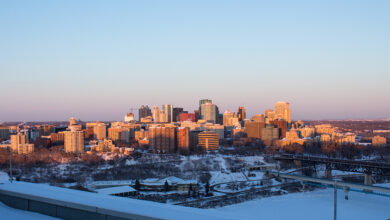7 things celiacs are tired of hearing

I’m not here to explain the science behind celiac disease, because there are real scientists and medical professionals who have already done that. I just want to share some of my personal experiences and a few things that I have noticed since I was diagnosed in February 2017. I’m not under any pretensions that I’m speaking for the entire celiac community. Every celiac experiences their disease differently and no two people’s experiences will ever be the same. I’m also very conscious that the vast majority of people have good intentions when they talk to celiacs and I know that big picture, I’m quite lucky because there are medical conditions that are way harder to live with. My chronic illness/disease is invisible which comes with some privileges but it also means that people assume things about me.
Please consider the following annoying questions that I get asked on a weekly basis.
1. Is it really that serious?
Yes, yes it is. Please don’t try to invalidate my serious medical condition.
2. What even is gluten?
Technically it is wheat, barley and rye, but anything that has “artificial colours” “flavours” or “spices,” could potentially have gluten in it. This includes everyday essentials that seem like they don’t need to have gluten in them, such as toothpaste, candy, gum, and tea.
3. How can you tell if something is gluten free?
Google. But for real, relatively few North American products are explicitly labelled “gluten-free,” so celiacs do a lot of extensive research online, which normally begins with typing “XYZ product gluten free?” OR “ABC product + celiac.”
4. What will happen if you eat gluten?
Personally, I won’t feel much; probably an upset stomach and I might be tired. But if even a tiny trace of gluten somehow ends up in my food, my small intestine will be damaged, potentially permanently. Every time I get ‘glutened’ (yes, it is also a verb), my body loses its capacity to absorb nutrients, so I could become malnourished, weak and very tired. In the long run celiacs who don’t eat gluten-free are susceptible to osteoporosis and certain types of cancers.
5. When will you be able to start eating normal food again?
Never. There is no cure for celiac disease and the only current treatment is to eat a 100 per cent gluten-free diet. As we celiacs say, #NoCureNoChoice.
6. I could never give up gluten!
No need to rub your restriction-free diet in my face. I literally have no other choice than to eat gluten-free for the rest of my life.
7. But everything is so much better for celiacs today than it was 20 years ago!
We. Know. We’re grateful for that, but it doesn’t negate the fact that our life is still a lot more complicated than someone who has no dietary restrictions. Finding safe food while travelling in foreign countries is especially fun. Overall, I’ve found the celiac community really welcoming and inclusive and I’m grateful that I was diagnosed so that I can take proper care of my body and live a healthier life. But that doesn’t mean that I’m giving up donuts! All celiacs are kind of forced to be educators and advocates. This gives us some really great skills, but some days it just gets to be too much, especially when we are already sick and tired because of our chronic and invisible illness. Celiacs just want everyone to know that this invisible and sometimes asymptomatic disease is still real and serious. Next time you meet a celiac, try saying something like “I’m sorry you have to deal with that every day!” or “Is there anything I can do to make you feel more comfortable?” or “Let me know if you need to choose the restaurant for dinner tonight.”




